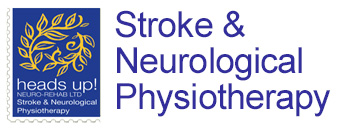Vestibular, Balance and Dizziness Problems
How dizziness and balance issues can affect your life
Your ability to balance depends on many different factors – including your vestibular system and how well your brain, nerves, eyes, muscles and joints are integrating with each other. The vestibular system is located in our inner ear and tells us where our body is in relation to gravity, where it is moving to and how fast.
There are many reasons why people suffer from vestibular/balance disorders. It may occur following a virus/infections or head injuries. However, it can also occur without any clear cause.
In some cases, dizziness is caused by a condition called Benign Paroxysmal Positional Vertigo (BPPV). This occurs when tiny crystals, which are part of the balance system in the inner ear, become displaced. When these crystals move into the wrong part of the ear, they interfere with normal balance signals to the brain, leading to short episodes of vertigo, with changes in head position.
Supporting you to manage your dizziness and balance problems
Many people begin to avoid movements that make them dizzy or provoke their symptoms. In vestibular physiotherapy we target these movements in order to retrain your brain to cope with the actions or environments which provoke your symptoms, so you can become symptom-free and regain your confidence.
Depending on the cause of your dizziness and the goals you want to achieve, treatment may include:
- Continued assessment throughout the treatment process
- Minimize vestibular systems
- Advice to resume your normal daily activities
- Balance and mobility training
- Improve body awareness
- Treat secondary problems – visual fixation, neck and thoracic stiffness
- Manage anxiety
- Manage fatigue
- Liaise with your GP or consultant about your medication and medical management
- Signpost you to organisations that can provide support
- Refer you to other health professionals as required
- Provide regular opportunities to discuss your progress and your changing needs
